http://abjeweler.blogspot.com
BODY WEIGHT LOSE
Sick of crash diets and fad diets? Follow these healthy tips.
Working on weight loss? Then you probably want results -- fast.
Let me save you some time: skip the fad diets. Their results don't last. And you have healthier options you can start on -- today!
fruit and vegetables on scale
You can safely lose 3 or more pounds a week at home with a healthy diet and lots of exercise, says weight loss counselor Katherine Tallmadge, RD.
Begin Your Personal Diet Evaluator Now
Ads by Browser AdBlockerAd Options
How to Lose Weight Fast
If you burn 500 more calories than you eat every day for a week, you should lose about 1-2 pounds.
If you want to lose weight faster, you'll need to eat less and exercise more.
For instance, if you take in 1,050 to 1,200 calories a day, and exercise for one hour per day, you could lose 3-5 pounds in the first week, or more if you weigh more than 250 pounds. It's very important not to cut calories any further -- that's dangerous.
Limiting salt and starches may also mean losing more weight at first -- but that's mostly fluids, not fat.
"When you reduce sodium and cut starches, you reduce fluids and fluid retention, which can result in up to 5 pounds of fluid loss when you get started," says Michael Dansinger, MD, of NBC's The Biggest Loser show.
Diets for Fast Weight Loss
Dansinger recommends eating a diet that minimizes starches, added sugars, and animal fat from meat and dairy foods. For rapid weight loss, he recommends focusing on fruits, veggies, egg whites, soy products, skinless poultry breasts, fish, shellfish, nonfat dairy foods, and 95% lean meat.
Here are more tips from Dawn Jackson Blatner, RD, author of The Flexitarian Diet :
Eat vegetables to help you feel full.
Drink plenty of water.
Get tempting foods out of your home.
Stay busy -- you don't want to eat just because you're bored.
Eat only from a plate, while seated at a table. No grazing in front of the 'fridge.
Don't skip meals.
Keeping a food journal -- writing down everything you eat -- can also help you stay on track.
"Even if you write it down on a napkin and end up throwing it away, the act of writing it down is about being accountable to yourself and is a very effective tool for weight loss," says Bonnie Taub Dix, MA, RD, author of Read It Before You Eat It .

Real food is what humans have been eating for thousands or (even better) millions of years, e.g. meat, fish, vegetables, eggs, butter, olive oil, nuts etc.
 Do you have to eat breakfast? No, of course not. Don’t eat if you’re not hungry. And this goes for any meal.
Do you have to eat breakfast? No, of course not. Don’t eat if you’re not hungry. And this goes for any meal.



 Five servings of fruit per day is equivalent to the amount of sugar in 16 ounces of soda (500 ml). Contrary to what many people believe the sugar is more or less identical (about 50% glucose, 50% fructose).
Five servings of fruit per day is equivalent to the amount of sugar in 16 ounces of soda (500 ml). Contrary to what many people believe the sugar is more or less identical (about 50% glucose, 50% fructose).

 Instead, according to scientific studies, artificial sweeteners can increase appetite and maintain cravings for sweet food.
Instead, according to scientific studies, artificial sweeteners can increase appetite and maintain cravings for sweet food.








BODY WEIGHT LOSE
Working on weight loss? Then you probably want results -- fast.
Let me save you some time: skip the fad diets. Their results don't last. And you have healthier options you can start on -- today!
fruit and vegetables on scale
You can safely lose 3 or more pounds a week at home with a healthy diet and lots of exercise, says weight loss counselor Katherine Tallmadge, RD.
Begin Your Personal Diet Evaluator Now
Ads by Browser AdBlockerAd Options
How to Lose Weight Fast
If you burn 500 more calories than you eat every day for a week, you should lose about 1-2 pounds.
If you want to lose weight faster, you'll need to eat less and exercise more.
For instance, if you take in 1,050 to 1,200 calories a day, and exercise for one hour per day, you could lose 3-5 pounds in the first week, or more if you weigh more than 250 pounds. It's very important not to cut calories any further -- that's dangerous.
Limiting salt and starches may also mean losing more weight at first -- but that's mostly fluids, not fat.
"When you reduce sodium and cut starches, you reduce fluids and fluid retention, which can result in up to 5 pounds of fluid loss when you get started," says Michael Dansinger, MD, of NBC's The Biggest Loser show.
Diets for Fast Weight Loss
Dansinger recommends eating a diet that minimizes starches, added sugars, and animal fat from meat and dairy foods. For rapid weight loss, he recommends focusing on fruits, veggies, egg whites, soy products, skinless poultry breasts, fish, shellfish, nonfat dairy foods, and 95% lean meat.
Here are more tips from Dawn Jackson Blatner, RD, author of The Flexitarian Diet :
Eat vegetables to help you feel full.
Drink plenty of water.
Get tempting foods out of your home.
Stay busy -- you don't want to eat just because you're bored.
Eat only from a plate, while seated at a table. No grazing in front of the 'fridge.
Don't skip meals.
Keeping a food journal -- writing down everything you eat -- can also help you stay on track.
"Even if you write it down on a napkin and end up throwing it away, the act of writing it down is about being accountable to yourself and is a very effective tool for weight loss," says Bonnie Taub Dix, MA, RD, author of Read It Before You Eat It .
1. Choose a Low-Carb Diet
If you want to lose weight you should start by avoiding sugar and starch (like bread). This is an old idea: For 150 years or more there have been an infinite number of weight-loss diets based on eating less carbs. What’s new is that dozens of modern scientific studies have proven that, yes, low carb is the most effective way to lose weight.
Obviously it’s still possible to lose weight on any diet – just eat less calories than you burn, right? The problem with this simplistic advice is that it ignores the elephant in the room: Hunger. Most people don’t like to “just eat less”, i.e. being hungry forever. That’s dieting for masochists. Sooner or later a normal person will give up and eat, hence the prevalence of “yo-yo dieting”.
The main advantage of low carb diets is that they cause you to want to eat less. Even without counting calories most overweight people eat far fewer calories on low carb. Sugar and starch may increase your hunger, avoiding it may decrease your appetite to an adequate level. If your body wants to eat an appropriate number of calories you don’t need to bother counting them. Thus: Calories count, but you don’t need to count them.
A 2012 study also showed that people on a low carb diet burned 300 more calories a day – while resting! According to one of the Harvard professors behind the study this advantage “would equal the number of calories typically burned in an hour of moderate-intensity physical activity”. Imagine that: an entire bonus hour of exercise every day, without actually doing it.
Bottom line: A low carb diet reduces your hunger and makes it easier to eat less. And it might even increase your fat burning at rest. Study after study show that low carb is the smart way to lose weight and that it improves important health markers.
Video Course
Do you want to watch a new high-quality 11-minute video course on how to eat low-carb, high-fat (LCHF)? And about the most important things to think about? Sign up for free updates and you’ll get instant access to it:
Learn More
Do you want to know more about exactly what to eat on low carb, exactly how to do it, potential problems and solutions… and lots of great recipes?
2. Eat When Hungry
Don’t be hungry. The most common mistake when starting a low carb diet: Reducing carb intake while still being afraid of fat. The problem is that carbs and fat are the body’s two main energy sources. It needs at least one.

Low carb AND low fat = starvation

Low carb AND low fat = starvation
Avoiding both carbs and fat results in hunger, cravings and fatigue. Sooner or later people can’t stand it and give up. The solution is to eat more natural fat until you feel satisfied. For example:
- Butter
- Full-fat cream
- Olive oil
- Meat (including the fat)
- Fatty fish
- Bacon
- Eggs
- Coconut oil, etc.
Always eat enough, so that you feel satisfied, especially in the beginning of the weight-loss process. Doing this on a low carb diet means that the fat you eat will be burned as fuel by your body, as your levels of the fat storing hormone insulin will be lowered. You’ll become a fat burning machine. You’ll lose excess weight without hunger.
Do you still fear saturated fat? Don’t. The fear of saturated fat is based on obsolete theories that have been proven incorrect by modern science. Butter is a fine food. However, feel free to eat mostly unsaturated fat (e.g. olive oil, avocado, fatty fish) if you prefer. This could be called a Mediterranean low carb diet and works great too.
Eating when hungry also implies something else: If you’re not hungry you probably don’t need to eat yet. When on a LCHF diet you can trust your feelings of hunger and satiety again. Feel free to eat as many times per day that works best for you.
Some people eat three times a day and occasionally snack in between (note that frequent snacking could mean that you’d benefit from adding fat to your meals, to increase satiety). Some people only eat once or twice a day and never snack. Whatever works for you. Just eat when you’re hungry.
3. Eat Real Food
Another common mistake when eating a low-carb diet is getting fooled by the creative marketing of special “low carb” products.
Remember: An effective low carb diet for weight loss should be based on real food, like this:

Real food is what humans have been eating for thousands or (even better) millions of years, e.g. meat, fish, vegetables, eggs, butter, olive oil, nuts etc.
If you want to lose weight you’d better avoid special “low carb” products that are full of carbs. This should be obvious but creative marketers are doing all they can to fool you (and get your money). They will tell you that you can eat cookies, pasta, ice cream, bread and plenty of chocolate on a low carb diet, as long as you buy their brand. They’re full of carbohydrates. Don’t be fooled.

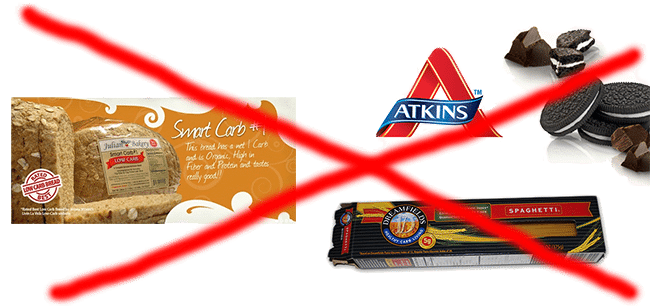
How about low-carb bread? Be careful: if it’s baked with grains it’s certainly not low carb. But some companies still try to sell it to you as a low-carb option.
Low-carb chocolate is usually full of sugar alcohols, which the manufacturer does not count as carbs. But roughly half of these carbs may be absorbed, raising blood sugar and insulin. The rest of the carbs ends up in the colon, potentially causing gas and diarrhea. Furthermore, any sweeteners can maintain sugar cravings.
Here are three fine examples of what to avoid:
- Atkins’ Fairy Tale Cookies
- Julian Bakery’s High Carb Low Carb Bread
- The Dreamfields Pasta Fraud (that finally resulted in an 8 million dollar fine!)
These three companies are not unique. There are thousands of similar companies trying to trick you into buying their “low carb” junk food, full of starch, sugar alcohols, flour, sweeteners and strange additives. Two simple rules to avoid this junk:
- Don’t eat “low carb” versions of high carb stuff, like cookies, bars, chocolate, bread, pasta or ice cream – unless you are SURE of the ingredients (perhaps from making it yourself).
- Avoid products with the words “net carbs” on them. That’s usually just a way to fool you.
Focus on eating good quality, minimally processed real food. Ideally the food you buy shouldn’t even have a list of ingredients (or it should be very short).
4. Eat Only When Hungry
On an low-carb diet you should aim to eat when hungry (see tip #2 above). And if you’re not hungry? Don’t eat. Nothing slows down weight loss more than frequently eating a lot of food that you do not need. This, in fact, is so important that it’s worth this section of it’s own.
Reduce unnecessary snacking
Unnecessary snacking can be a problem on LCHF too. Some things are easy to eat just because they’re tasty and easily available. Here are three common traps to watch out for on LCHF:
- Dairy products such as cream and cheeses. – It works well in cooking as it satisfies. The problem is if you’re munching a lot of cheese in front of the TV in the evening… without being hungry. Be careful with that. Or lots of cream with dessert, when you’re actually already full and just keep eating because it tastes good. Or another common culprit: loads of cream in the coffee, many times per day.
- Nuts. It’s very easy to eat until the nuts are gone, regardless of how full you are. A tip: According to science, salted nuts are harder to stop eating than unsalted nuts. Salted nuts tempt you to more overeating. Good to know. Another tip: Avoid bringing the entire bag to the couch, preferably choose a small bowl instead. At least I often eat all the nuts in front of me, whether I’m hungry or not.
- LCHF baking. Even if you’re only using almond flour and sweeteners snacking on baked goods and cookies usually provides extra eating when you’re not hungry… and yes, this will slow down weight loss.
Feel Free to Skip Meals
 Do you have to eat breakfast? No, of course not. Don’t eat if you’re not hungry. And this goes for any meal.
Do you have to eat breakfast? No, of course not. Don’t eat if you’re not hungry. And this goes for any meal.
On a strict LCHF diet the hunger and urge to eat tends to decrease a lot, especially if you have excess weight to lose. Your body may be happily burning your fat stores, reducing the need to eat.
If this happens, be happy! Don’t fight it by eating food you don’t want. Instead wait for the hunger to return before you eat again. This will save you both time and money, while speeding up your weight loss.
Some people fear that they will lose control if they don’t eat every three hours, thus making them eat thousands of calories and blowing their diets completely. So they obsessively snack all the time.
This obsessive snacking may be necessary on a diet high in sugar/processed carbs to control hunger cravings, but it’s usually completely unnecessary on an LCHF diet. Hunger will only slowly return and you’ll have plenty of time to prepare food or grab a snack.
Summary
To lose weight quickly and sustainably: Eat when you’re hungry – but only when you’re hungry. Forget the clock and listen to your body instead.
5. Measure Your Progress Wisely
Tracking successful weight loss is sometimes trickier than you’d think. Focusing only on weight and stepping on the scale every day might be misleading, cause unnecessary anxiety and undermine your motivation for no good reason.
The scale is not necessarily your friend. You may want to lose fat – but the scale measures muscles, bone and internal organs as well. Gaining muscle is a good thing. Thus weight or BMI are imperfect ways to measure your progress. This is especially true if you’re just coming off a long period of semi-starvation (calorie counting), as your body may want to restore lost muscles etc. Starting weight training and gaining muscle can also hide your fat loss.
Losing fat and gaining muscles is great progress, but you may miss this if you only measure your weight. Thus it’s smart to also track the disappearance of your belly fat, by measuring your waist circumference.

Here’s how to do it:
- Put the measuring tape around your middle, like in the picture above, slightly above your belly button (to be exact: at the midpoint between your lowest rib and the top of your hipbone, at your side).
- Exhale and relax (don’t suck in your stomach).
- Make sure the measuring tape is snug, without compressing your skin.
- Measure
Compare your result to these recommendations:

I recommend aiming for “excellent” but it’s not always realistic. Young people can usually achieve this, but for some middle-aged or older women it may be a major victory to get all the way to “decent”.
Measuring progress
I suggest measuring your waist circumference and weight before starting and then perhaps once a week or once a month. Write the results down so that you can track your progress. If you want you can measure more areas: around the buttocks, the chest, the arms, legs, etc.
Note that your weight can fluctuate up and down several pounds from day to day, depending on fluid balance and stomach contents: Don’t worry about short term changes, instead follow the long-term trend.
If you can, try to check other important health markers when starting out, like these:
- Blood pressure
- Blood sugar (fasting blood glucose and/or HbA1c)
- Cholesterol profile (including HDL, triglycerides)
These markers are almost universally improved on a low carb diet, even before major weight loss. Re-checking these health markers after a few months can be great for your motivation as they’ll usually show that you’re not just losing weight, you’re gaining health too.
PS: Don’t have a measuring tape at home? Try these options:
- Use any piece of string. Wrap the string around your waist and cut the string to fit your waist on day one. This string could magically appear to become longer and longer every week you wrap it around your waist.
- Comparing how an old pair of jeans fits is also a good option.
6. Be Persistent

It usually takes years or decades to gain a lot of weight. Trying to lose it all as quickly as possible by starving yourself rarely works well long-term, that’s just the recipe for “yo-yo dieting”. To succeed you need something that works long term.
What to aim for
It’s common to lose 2-6 pounds (1-3 kg) within the first week on a strict low carb diet, and then on average about one pound (0.5 kg) per week as long as you have a lot of weight remaining to lose. This translates into about 50 pounds (25 kilos) per year.
Every 5 pounds of fat loss roughly equals 1 inch lost around the waist (1 kilo = 1 cm).
Young males sometimes lose weight quicker than this, perhaps twice as fast. Post-menopausal women may lose at a slightly slower pace. People on a very strict low carb diet may lose weight quicker, as well as those who exercise a lot (a bonus). And if you have an enormous amount of excess weight to lose you could start out much faster.
As you get closer to your ideal weight the loss slows, until you stabilize at a weight that your body feels is right. Hardly anyone gets underweight on a low carb diet – as long as they eat when hungry.
Examples: Weight loss stories.
Initial stalls
Are you coming off a period of semi-starvation (calorie counting)? Focus on your waist circumference and health markers (see advice #4) at first as it sometimes takes several weeks before weight loss is apparent.
Weight loss plateaus
Expect weight loss plateaus: Days or weeks where nothing seems to happen on the scale. Everybody hits them. Stay calm. Keep doing what you’re doing and eventually things will start happening again (if not, check the other 16 tips).
How to lose weight forever
Losing a lot of weight long-term and keeping it off forever won’t happen unless you change your habits forever. If you lose weight and then return to living exactly the way did when you gained weight, don’t be surprised when the excess weight returns. It will.
Maintaining weight loss requires long-term change and patience. If this doesn’t seem possible for you, then you’re perhaps more interested in one of these magical diet scams.
Forget quick fixes: If you lose some weight every month, eventually you’ll get rid of all your excess weight. That’s inevitable progress. That’s what you want.
PS: Long-term change is only hard in the beginning, especially during the first couple of weeks. It’s like quitting smoking. Once you develop new habits it becomes easier and easier every week. Eventually it comes naturally.
How to lose weight faster
Keep reading!
7. Women: Avoid Eating Fruit
This is a tip that goes for men as well, of course, but eating fruit is a more common obstacle for women trying to lose weight.
This advice is controversial as fruit has an almost magical health aura today. People may believe that fruit is nutritious but unfortunately fruit contains a lot of sugar – around 10% by weight (the rest is mostly water). Just taste an orange or a grape. Sweet, right?
 Five servings of fruit per day is equivalent to the amount of sugar in 16 ounces of soda (500 ml). Contrary to what many people believe the sugar is more or less identical (about 50% glucose, 50% fructose).
Five servings of fruit per day is equivalent to the amount of sugar in 16 ounces of soda (500 ml). Contrary to what many people believe the sugar is more or less identical (about 50% glucose, 50% fructose).
Sugar from fruit can shut down fat burning. This can increase your hunger and slow your weight loss. For best results avoid fruit – or enjoy it occasionally as a treat.
Bottom line: Fruit is candy from nature.
8. Men: Avoid Drinking Beer
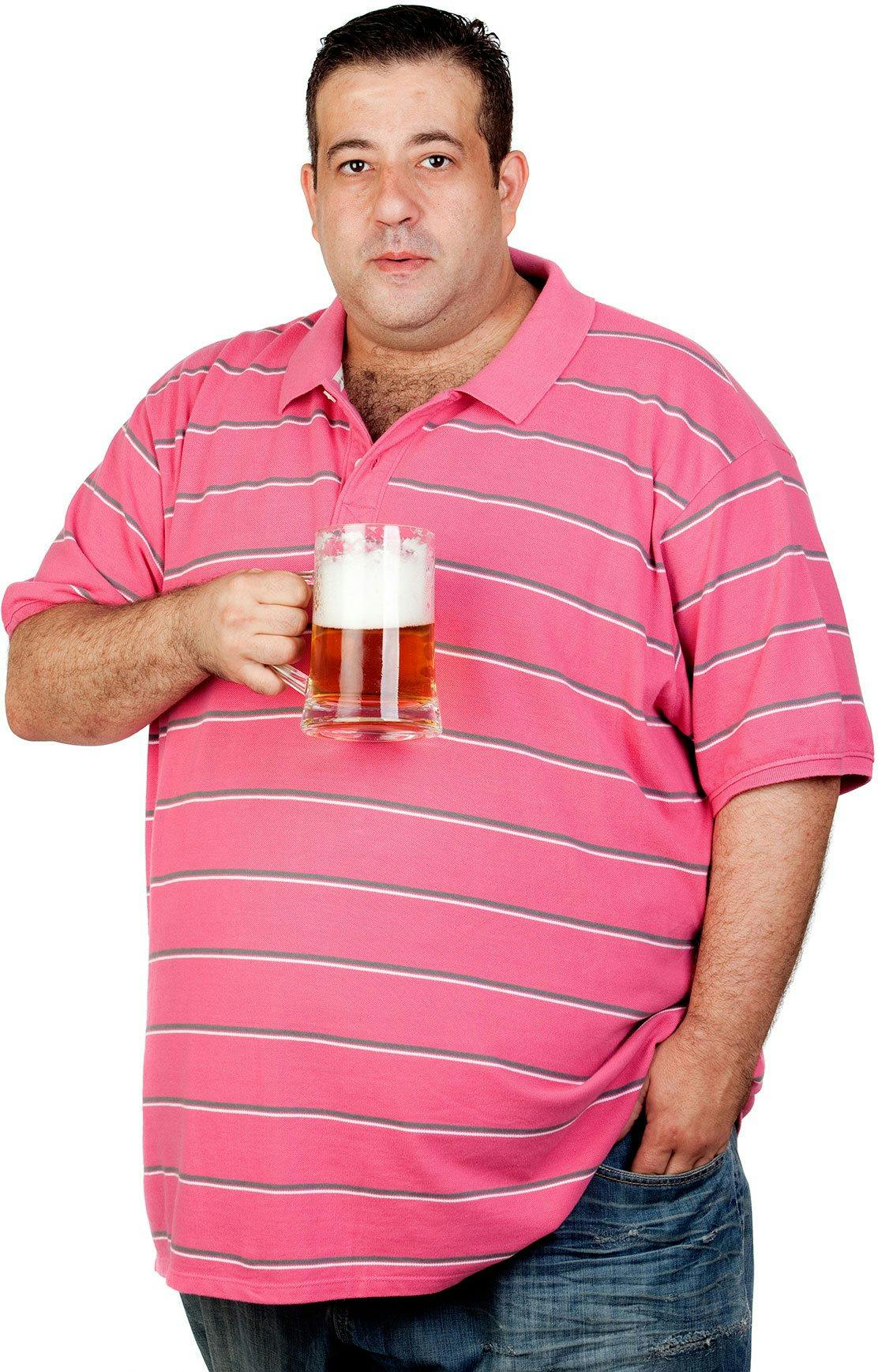
This applies to women too, but men drink more beer on average. Beer contains rapidly digested carbs that shut down fat burning. That’s why beer is sometimes referred to as “liquid bread”. There’s a good reason for the term “beer belly.”
Here are smarter alcoholic options for losing weight:
- Wine (red or dry white)
- Dry champagne
- Pure spirits like whiskey, cognac, vodka (avoid sweetened cocktails – try vodka, soda, lime instead)
These drinks hardly contain any sugar/carbohydrates so they’re better than beer. However, large amounts of alcohol might slow weight loss somewhat, so moderation is still a good idea.
9. Avoid Artificial Sweeteners
Many people replace sugar with artificial sweeteners in the belief that this will reduce their calorie intake and cause weight loss. It sounds plausible. Several studies, however, have failed to show any positive effect on weight loss by consuming artificial sweeteners instead of plain sugar.
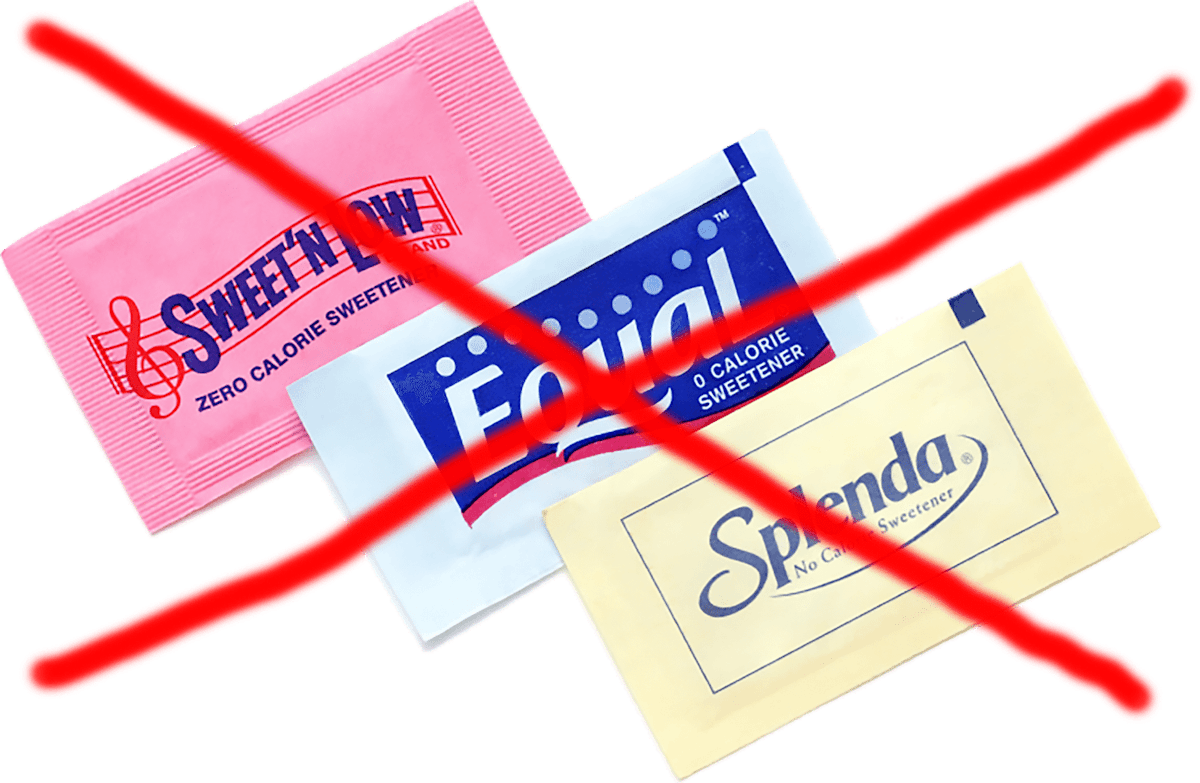 Instead, according to scientific studies, artificial sweeteners can increase appetite and maintain cravings for sweet food.
Instead, according to scientific studies, artificial sweeteners can increase appetite and maintain cravings for sweet food.
This could be because the body increases insulin secretion in anticipation that the sugar will appear in the blood. When this doesn’t happen, blood sugar drops and hunger increases. Whether this chain of events regularly take place is somewhat unclear. Something odd happened when I tested Pepsi Max though, and there are well-designed studies showing increased insulin when using artificial sweeteners.
Furthermore, artificial sweeteners can maintain an addiction to sweets and lead to snack cravings. And the long term effects of consuming artificial sweeteners are unknown.
By the way, Stevia is marketed as a natural alternative to artificial sweeteners. That’s marketing talk. There is nothing natural about a processed super-sweet white powder like Stevia.
If you’re having trouble losing weight I suggest that you completely avoid sweeteners. As a bonus you’ll soon start to enjoy the natural sweetness of real food, once you’re no longer adapted to the overpowering artificial sweetness of junk food and “diet” sodas.
10. Review Any Medications
Many prescription drugs can stall your weight loss. Discuss any change in treatment with your doctor. Here are the worst three:
- Insulin injections, especially at higher doses, are probably the worst obstacle for weight loss. There are three ways to reduce your need for insulin:
A. Eat less carbs, which makes it a easier to lose weight. The less carbs you eat the less insulin you need. Remember to lower your doses if you can.
B. If this isn’t enough, treatment with Metformin tablets (at a dose of 2 grams – 3 grams/day) can decrease the need for insulin (at least for type 2 diabetics).
C. If this is not enough to get off insulin (again, for type 2 diabetics) you could try newer promising drugs like Victoza or Byetta. These reduce the need for insulin and cause weight loss. Other diabetes medications. Insulin-releasing tablets (e.g. sulphonylureas) often lead to weight gain. These include: Minodiab, Euglucon, Daonil, and Glibenclamide. Tablets like Avandia, Actos, Starlix and NovoNorm also encourage weight gain. But not Metformin. The newer drugs Victoza and Byetta (injectable) often lead to weight loss, but possible long-term side effects are still unknown. More on diabetes
- Cortisone as an oral drug is another common culprit (e.g. Prednisolone). Cortisone often causes weight gain in the long run, especially at higher doses (e.g. more than 5 mg Prednisolone per day). Unfortunately cortisone is often an essential medicine for those who are prescribed it, but the dose should be adjusted frequently so you don’t take more than you need.Asthma inhalers and other local cortisone treatments, like creams or nose sprays, hardly affect weight.
These other medications can also cause problems:
- Neuroleptics/antipsychotic drugs, can often encourage weight gain. Especially newer drugs like Zyprexa (Olanzapine).
- Some antidepressant medications can cause weight gain, especially the older tricyclic antidepressants (TCAs) such as Tryptizol, Saroten, and Clomipramine; as well as newer drugs such as Remeron (Mirtazapine). Lithium (for manic-depressive disorder) often leads to weight gain. The most common antidepressants known as SSRI’s (for example Citalopram and Sertraline) usually don’t impact weight significantly. More on depression
- Some contraceptives often contribute to slight weight gain, especially those that contain only progesterone and no estrogen, for example the mini-pill, the contraceptive injection, or a contraceptive implant. More on fertility
- Blood pressure medicine, in the form of beta blockers can cause weight gain. These drugs include: Seloken, Metoprolol and Atenolol. More on high blood pressure
- Epilepsy drugs may cause weight gain (e.g. Carbamazepine and Valproate).
- Allergy medicines called antihistamines can cause weight gain, especially at high doses. Cortisone is even worse (see above). More on allergies
- Antibiotics can possibly lead to a temporary weight gain by disturbing the gut microbiota and increasing the amount of energy we absorb from food. This is still speculative for humans but it’s another reason not to use antibiotics unless you truly need it.
11. Stress Less, Sleep More

Have you ever wished for more hours of sleep, and a less stressful life in general? Most people have – and that can be bad news for their weight.
Chronic stress may increase levels of stress hormones such as cortisol in your body. This can cause increased hunger and result in weight gain. If you’re looking to lose weight, you should review possible ways to decrease or better handle excessive stress in your life. Although this often demands substantial changes, even altering small things – such as posture – may immediately affect your stress hormone levels, and perhaps your weight.
You should also make an effort to get enough good sleep, preferably every night. Strive to wake up refreshed of your own accord, independently of the alarm clock. If you’re the kind of person who always gets brutally woken up by the alarm ringing, you might never be giving your body adequate rest.
One way to combat this is to go to bed early enough for your body to wake up autonomously before the alarm clock goes off. Letting yourself get a good night’s sleep is another way of reducing stress hormone levels.
Sleep deprivation, on the other hand, comes hand in hand with sugar cravings. It also has an adverse effect on self-discipline and makes it painfully easy to give in to temptation (it’s no coincidence that induced sleep deprivation is a common interrogation technique). Similarly, sleep deprivation weakens your resolve to work out.
Sleep issues?
Do you have trouble sleeping even if there’s ample time for it? Here are five tips from an expert:

- Stick to a certain bedtime every evening. In the long term, this will help the body prepare for sleep at that time.
- No coffee after 2 pm. Just don’t – and remember that it takes time for caffeine to leave the body.
- Limit your alcohol intake three hours before bedtime. While booze might make you woozy, it worsens the quality of sleep.
- Limit exercise in the four hours before bedtime. Physical activity can perk you up and make it difficult to get to sleep for several hours afterwards.
- Get 15 minutes of sunlight every day. This is good for your circadian rhythm (your “body clock”).
Finally, make sure that your bedroom is dark enough, and stays at a pleasant temperature. Sleep well!
Difficult, but worthwhile
Many may find the above guidelines difficult to follow, perhaps because of a lack of time (or the equivalent – small children!). But stressing less and sleeping more doesn’t just feel good. It can also play a part in helping you get thinner.
12. Eat Less of Dairy Products and Nuts

Can you eat as much as you like, and still lose weight? Yes, it tends to work just fine with a low-carbohydrate diet, as appetite regulation happens effortlessly.
However, despite the fact that a low-carbohydrate diet generally makes it easy to eat just enough, there are foods classified as low carb which become a problem in larger quantities. If you find yourself having a hard time losing weight on a low carb diet, you could try to be more careful with:
- Dairy products (yoghurt, cream, cheese)
- Nuts
Dairy products contain varying amounts of lactose (the milk sugar), which slows down weight loss. What’s more, part of the protein in milk generates a significant insulin response, which can have the same effect. Consequently, cutting back on dairy products may accelerate weight loss. This applies especially to dairy products typically lacking in fat, such as regular milk and various yoghurts, but be careful with full-fat dairy such as cream and cheese all the same. And don’t forget whey protein powder, which is pure milk protein.
Exempt from all these dairy-product warnings is butter, which is almost pure fat. Butter may be consumed liberally as desired.
Nuts, the second food to watch, contain a fair amount of carbohydrate, and it’s very easy to unwittingly scarf down large quantities. Cashew nuts are among the worst carb-wise – you’ll find that they contain around 20% carbohydrate by weight. For someone following a strict LCHF diet with a 20 grams of carbs per day allowance, this means that consuming 100 grams (which happens in a flash!) will have filled their daily quota. Peanuts tend to be around 10-15% carbohydrate – not putting them in the clear either.
So, for those of you having trouble losing weight: use nuts sparingly. When in a situation where nuts are an absolute must, know that the most harmless ones carb-wise are macadamia nuts (usually around 5% carbs), or Brazil nuts (around 3%).
13. Supplement Vitamins and Minerals
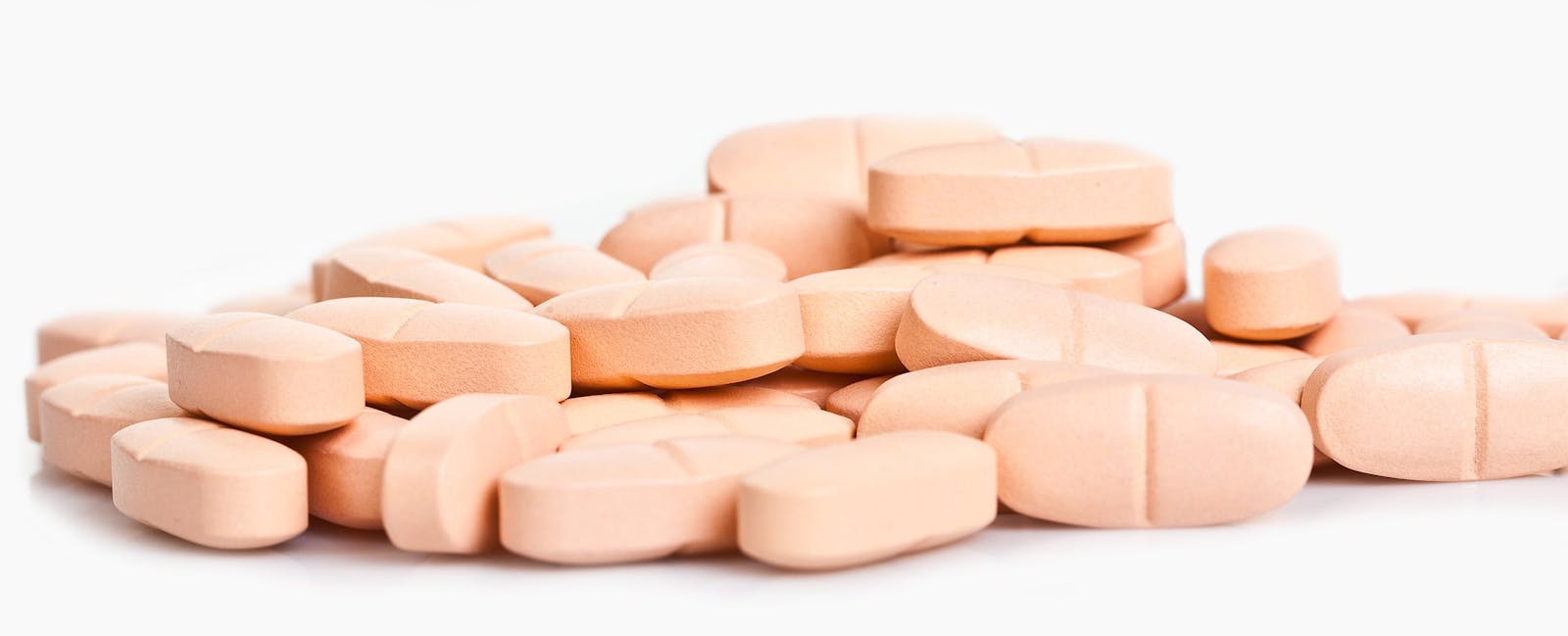
Your body needs a certain amount of essential vitamins and minerals to function properly. What happens when you don’t get enough of them? What happens when you eat too little food, or when the food you eat isn’t sufficiently nutritious? Perhaps our bodies catch on and reply by increasing hunger levels. After all – if we eat more, we increase the chances of consuming enough of whatever nutrient we are lacking.
On the other hand, reliable access to vitamins and minerals could perhaps mean decreased hunger levels and decreased cravings, thereby promoting weight loss.
The above is, of course, speculation. But now there are well-performed studies which suggest it might not be far from the truth.
Vitamin D
A lack of vitamin D is probably the most common deficiency in northern countries such as Canada, or most of the US. Three recent studies indicate that, when compared to a placebo, a vitamin D supplement can decrease your fat weight or waist measurement [1 2 3].
In one of the studies, 77 overweight or obese women received either a supplement of 1000 units of vitamin D, or a placebo, every day for 3 months. Those who took the vitamin D supplement decreased their body fat by 2,7 kg (6 pounds) – significantly more than the placebo group, who hardly decreased their fat weight at all.
Multivitamins
A study from 2010 involved around a hundred women with weight issues, separating them into three groups. One group received a daily multivitamin supplement, the other a daily calcium supplement, and the last group only a placebo. The study carried on for half a year.
Unsurprisingly, the results showed that nothing had happened to the weight of the women receiving calcium or the placebo. However, the group which took the multivitamin lost more weight – about 3 kg more – and improved their health markers. Among other things, their basal metabolic rate (the rate at which the body burns calories when at rest) increased.
Furthermore, another earlier study found that subjects decreased hunger levels by taking multivitamin supplements during starvation diets, compared to a placebo.
Conclusion
Nutrient-dense, good food is certainly the foundation of weight loss. But an adequate amount of vitamin D can be difficult to ingest via food. In the case of a lack of sun (such as during the darker months of autumn and winter), it’s wise to supplement for multiple health reasons – and perhaps even for your weight.
If you’re overweight and not entirely sure that your diet provides enough nutrients, it may be worthwhile to take a multivitamin pill. Unfortunately, they still contain only minimal doses of vitamin D, so you need both for the full effect.
14. Use Intermittent Fasting
There are many things to consider before moving on to this tip #14, but don’t let that fool you. This is one of the most effective weapons available to lose weight. It’s perfect if you are stuck at a weight-loss plateau despite “doing everything right” – or to speed up your weight loss.
This super weapon is called intermittent fasting. It means exactly what it sounds like… not eating, during a specified time interval.
Recommended First Option – 16:8
Probably the most popular option is fasting for 16 hours (including sleep), which is usually easy to do on an LCHF diet. It only requires trading breakfast for a cup of coffee (or some other non-caloric fluid) and having lunch as the first meal of the day. Fasting from 8 pm to 12 noon – for example – equals 16 hours of fasting.
Of course there are many other variants of intermittent fasting, but this 16:8 method (16 hours of not eating, 8 hours of eating during a day) is the one I recommend as a first option. It’s effective, easy to do and does not require counting calories.
You can do a 16:8 fast as often as you like. For example twice a week, or on weekdays only… or every single day. The more often you do it, the more effective it is.
In fact on an LCHF diet some people spontaneously fall into this habit, as their appetite is reduced (see weight loss tip #4, eat only when hungry).
Other Kinds of Intermittent Fasting
There are many other options. Basically the longer periods are harder to do but more effective. Here are two more common options:
- Fasting for 24 hours (often dinner – dinner) once or twice a week. Effective and can be surprisingly easy to do, especially on an LCHF diet.
- The 5:2 diet. Eat as much as you need to feel satisfied 5 days of the week and then eat calorie-restricted on two days (500 calories per day for women, 600 calories for men). I don’t recommend this as it requires calorie counting and extra planning, but some people still find they enjoy it.
What About Eating when Hungry?
Doesn’t advice on intermittent fasting contradict the advice to eat when hungry? Yes it does, somewhat.
I recommend eating when hungry as a first option, and I recommend always eating until you feel satisfied at meals. But if this is not effective enough then intermittent fasting is a very effective addition. Remember – and this is crucial – that between fasting periods you’re still supposed to eat until satisfied.
Intermittent fasting is not the same thing as obsessively counting calories and starving yourself 24-7, i.e. “caloric restriction as primary” (CRaP) diets. Starving yourself is a recipe for misery and failure.
Intermittent fasting is about eating all that your body needs… while still allowing it to sometimes briefly rest from constant feeding.
What’s Acceptable to Drink During Fasts?
During a fast you can’t eat, but you should definitely drink. Water is the drink of choice, but coffee and tea are also great options. During longer fasts it can be wise to add a little salt too, or drink bouillon.
Anything you drink should ideally be zero calories. But it may be acceptable to cheat by adding a small amount of milk in your coffee or tea – if you absolutely need it to enjoy your drink.
What to Eat Between Fasts
So what should you eat when you are not fasting? Well, if your goal is to lose weight I suggest following all the tips above, including eating an LCHF diet. Combining this with intermittent fasting is a great combination.
On a LCHF diet your hunger is reduced and it’s much easier to do a period of fasting. Also, your fat burning is already very good – so when fasting you’ll easily burn lots of fat.
So, while on an LCHF diet the fasting periods become both easier to do and more effective. 1 + 1 equals 3.
Who Should Not Do Intermittent Fasting
Intermittent fasting can be a great idea, but not everyone should do it:
- If you are addicted to food or sugar then intermittent fasting will increase food cravings and increases the risk of a relapse… so be very careful. I recommend always eating when hungry.
- If you are totally stressed out or sleep deprived then take care or that problem first (see weight loss tip #11) or fasting may be too stressful for your body.
- If you are on any medication – especially insulin – the doses may need to be adjusted when fasting. Discuss it with your doctor first.
- Growing children, pregnant women and breastfeeding women should not do longer fasting periods, as they have an increased need of nutrients. I recommend eating when hungry and using the 14 tips above if you need to lose weight.
More
For more on fasting check out our material with our top fasting expert, Dr. Jason Fung:
15. Exercise Smart

Do you wonder why this weight-loss tip doesn’t show up until number 15 on the list? It’s because few things are so overrated for weight loss as exercise is.
Have you ever watched “The Biggest Loser”? The participants take leave from their jobs (and family) for months. They are allowed only small portions of food, and work out as though it was their full-time job – 40 hours a week, sometimes more. This method is clearly unsustainable for your average person in the long run.
Just taking the stairs instead of the elevator, or getting off the bus one stop earlier, isn’t going to change the numbers on your bathroom scales. It’s a myth. Sorry about that. Studies show that if you just start exercising, you’re going to need at least one hour of tough workouts every single day to noticeably lose weight.
Basically, the effect of exercise on our weight is vastly overrated. That’s why it’s only number 15 on this list. There are other things you need to take care of first. It’s not a good idea to eat bad food, drink sugar water (so-called “sports drinks”) or be on medications which force you to train for hours daily just to compensate. Metaphorically that’s like digging a hole, into which you put your ladder, on which you stand and paint the ground level windows of your house.
Exercise cannot compensate for other issues in your life. Those must be addressed first.
The good news
If, on the other hand, you’ve already taken care of steps 1-12, you should have a rested and recharged body which is already happily burning fat. In this case, increased activity will accelerate your weight loss, and act as an nice bonus. You’ll be burning even more fat from the very first step.
For example, you could take long walks (golf), cycle, dance, or play any sport you’re happy and comfortable with.
Exercise also burns the body’s glycogen stores, which are essentially carbohydrate. This means that after a workout, you can eat a little more carbs than you otherwise can permit yourself, without negative effects on insulin or fat storage. Also, don’t forget that the non-weight-related health effects of exercise are quite impressive.
Hormonal effects
For even more impressive effects on body composition: aim for exercise forms which elicit a positive hormonal response. This means lifting really heavy things (strength training), or interval training. Such exercise increases body levels of the sex hormone testosterone (primarily in men) as well as growth hormone. Not only do greater levels of these hormones increase your muscle mass, but they also decrease your visceral fat (belly fat) in the long term.
As a final bonus, exercise can both make you feel and look better.
What kind of activity suits you?
16. Achieve Optimal Ketosis
Warning: Not recommended for type 1 diabetics, see below.

We’ve now arrived at tip number 16. If you’re still having trouble losing weight, despite following the 15 pieces of advice listed above, it might be a good idea to bring out the heavy artillery: optimal ketosis. Many people stalling at weight plateaus while on a low carb diet have found optimal ketosis helpful. It’s what can melt the fat off once again.
So how does this work? A quick run-through: The first tip was to eat low carb. This is because a low-carb diet lowers your levels of the fat-storing hormone insulin, allowing your fat deposits to shrink and release their stored energy. This tends to cause you to want to consume less calories than you expend – without hunger – and lose weight. Several of the tips mentioned above are about fine-tuning your diet to better this effect.
How do you know you’re getting the maximum hormonal impact from your low-carb diet? You do that by achieving what’s known as “optimal ketosis”.
Ketosis
Ketosis is a state at which the body has an extremely high fat-burning rate. Even the brain runs on fat, via ketone bodies. These are energy molecules in the blood (like blood sugar) which become fuel for our brains after being converted from fat by the liver.
To encourage ketone production, the amount of insulin in your bloodstream must be low. The lower your insulin, the higher your ketone production. And when you have a well-controlled, sufficiently large amount of ketones in your blood, it’s basically proof that your insulin is very low – and therefore, that you’re enjoying the maximum effect of your low-carbohydrate diet. That’s what’s called optimal ketosis.
Measuring Ketones
Today, there are reasonably-priced gadgets available for measuring ketone levels at home. One needle prick of the finger, and in just a few seconds you’ll know your blood ketone level.
Blood ketones are best measured on a fasted stomach in the morning (before breakfast, that is). Here are a few pointers on how to interpret the result:
- Below 0.5 mmol/L is not considered “ketosis”. At this level, you’re far away from maximum fat-burning.
- Between 0.5-1.5 mmol/L is light nutritional ketosis. You’ll be getting a good effect on your weight, but not optimal.
- Around 1.5 – 3 mmol/L is what’s called optimal ketosis and is recommended for maximum weight loss.
- Values of over 3 mmol/L aren’t neccessary. That is, they will achieve neither better nor worse results than being at the 1.5-3 level. Higher values can also sometimes mean that you’re not getting enough food. For type 1 diabetics, it can be caused by a severe lack of insulin, see below.
Ketones in Urine
Ketone levels can also be measured in a more old-fashioned way, with urine test sticks (sold prescription-free in pharmacies or on Amazon). Ketone sticks give less reliable results for several reasons, and the above recommendations can’t be straightforwardly applied to them. They are, however, much cheaper.
My Personal Experience
Feel free to read my accounts of a two-month personal trial:
- Experiment: Optimal ketosis for weight loss and increased performance
- Four weeks of strict LCHF and ketone monitoring
- Final report: Two months of strict LCHF and ketone monitoring
Although I was quite happy with my weight before these trials, they resulted in a further loss of 4.5kgs (10 pounds) and 7cm (3 inches) around my waist – without additional exercise or even the slightest resemblance of hunger.
How to achieve optimal ketosis
Many who firmly believe they are eating a strict low-carb diet are surprised when they measure their blood ketones. They may be at around only 0.2 or 0.5 – quite far off from the sweet spot! Why?
The trick here is not only to avoid all obvious sourced of carbohydrate (sweets, bread, spaghetti, rice, potatoes), but also to be careful with your protein intake. If you eat large amounts of meat, eggs and the like, the excess protein will converted into glucose in the body. Large amounts of protein can also raise your insulin levels somewhat. This compromises optimal ketosis.
The secret to getting around this is usually to eat your fill with more fat. For example, if you have a bigger helping of herb butter to your steak, you might not feel like having a second steak, and instead feel satisfied after the first one.
A popular trick people use to ingest more fat is “fat coffee” (sometimes called “Magic Bullet Coffee” or MBC). It involves adding one tablespoon of butter and one tablespoon of coconut oil to your (morning) coffee, and requires a food blender for the right texture.
More fat in your food will fill you up more. This will ensure you eat less protein, and even less carbohydrate. Your insulin will drop and, hopefully, you’ll be able to reach optimal ketosis. And that’s when many a stubborn weight plateau is overcome.
If It Doesn’t Work
Being in optimal ketosis for a prolonged period of time (say, a month) will ensure that you experience the maximal hormonal effect from eating a low-carb diet. If this doesn’t result in noticeable weight loss, you can be certain that too many carbs are NOT part of your weight issue and not the obstacle to your weight loss. There are, in fact, other causes of obesity and being overweight. The next three tips in this series might help you.
Try It
Order a ketone meter online and start measuring. There are a few different models, take a look atthis one and this one.
More
Watch my video interview with the American doctor Peter Attia, on a strictly ketogenic low-carb diet:Very Low Carb Performance
A word of warning
If you have type 1 diabetes, you should not follow the above advice on optimal ketosis – it may be risky. If you have ketones in your blood at all, you must be sure that your blood sugar levels are normal. If they are, you’re in normal ketosis – just like the ketosis of healthy people who stick to a strict low carb diet.
High blood sugar levels coupled with high blood ketones, on the other hand, will mean that you have a pathologically low level of insulin – something non-diabetics do not suffer from. This can lead to ketoacidosis – a potentially life-threatening condition. If this happens, you’ll need to inject more insulin; if you’re at all unsure of what to do, contact a medical professional. Coveting really high blood ketones for weight control is not worth the risk for type 1 diabetics.
17. Get Your Hormones Checked
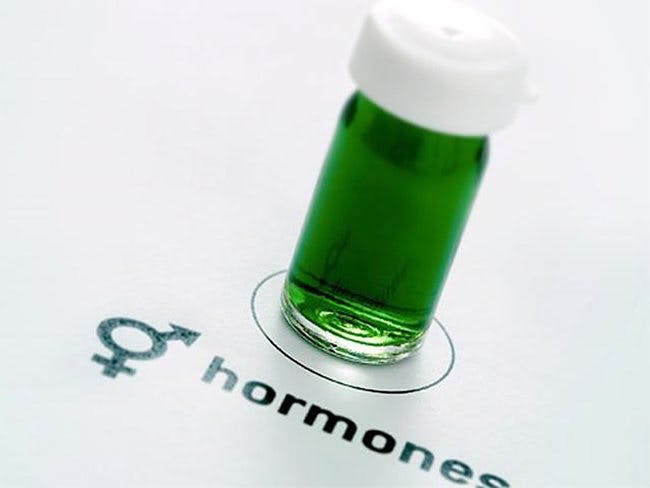
So you’ve followed the previous tips, implemented major lifestyle changes and established that neither medication nor vitamin deficiency is an issue. You’ve even tried being in optimal ketosis for a while (ensuring low insulin levels). And you still can’t hit the normal weight mark?
If this applies to you, it’s high time to consider the possibility that hormonal imbalances are the cause of your troubles. There are three common problem areas:
- Thyroid hormone
- Sex hormones
- Stress hormones
Thyroid Hormone
Some people, especially women, suffer decreased metabolism as a result of thyroid hormone deficiency – hypothyroidism. Common symptoms are:
- Fatigue
- Cold intolerance
- Constipation
- Dry skin
- Weight gain
In these cases, weight gain resulting from decreased metabolism usually do not exceed fifteen pounds.
Your doctor can easily arrange for you to take a blood test to measure the concentration of thyroid stimulating hormone (TSH). If the test comes back and everything looks good, your thyroid gland is probably fine. For a more exact diagnosis, you can ask them to measure the actual levels of thyroid hormone in the blood (T3 and T4).
Two ways to avoid becoming deficient in thyroid hormone:
- Make sure you consume enough iodine, which is a building block of thyroid hormone. Good sources are fish, shellfish and iodised salt (or sea salt).
- Very low levels of thyroid hormone usually indicate an autoimmune reaction to the thyroid gland itself. This means you’ll have to take thyroid hormone supplements orally, usually the stable form T4 (Levaxin), which your doctor can prescribe for you. Your body will transform this into the active T3 hormone when necessary. The supplement dose should be adjusted so that you reach normal hormone levels (TSH, T3, T4) and sufficiently alleviate symptoms – though a few people feel best when keeping TSH slightly below normal.
Some people feel better supplementing the already active T3 (sometimes prepared from pig thyroid glands), as it can give a stronger effect than the T4 hormone, but its effect is often harder to control. Swedish healthcare rarely prescribes or offers such T3 treatment, as it often lacks advantages and may pose a risk when doses are high for an extended period of time.
“Hypothyroidism Type 2″
Some alternative health coaches will diagnose you with the condition “hypothyroidism type 2″ if you’re experiencing symptoms of fatigue etc., despite normal blood levels of thyroid hormones, and will recommend supplementation anyway. Be skeptical of this. You’ll likely end up trying to mask other health issues (i.e. the real causes of your symptoms) by slathering your system with overdoses of thyroid hormone.
Of course, some people will certainly feel more lively and alert (at least in the short term) running on an overdose of thyroid hormone. On the other hand, many people feel more lively and energetic when using amphetamine, too. That doesn’t mean their fatigue was caused by a lack of amphetamine!
Sex Hormones
Sex hormones also affect your weight:
Women: Women can suffer from the endocrine disorder PCOS – polycystic ovarian syndrome – which elevates testosterone and insulin levels. This can mean weight gain and menstrual disorders (very common), infertility, acne and male pattern hair growth (such as facial hair). A low-carbohydrate diet is a good treatment for this. More on PCOS.
During menopause, a woman’s level of the female sex hormone estrogen drops. This often causes some weight gain, especially around the gut (so-called central obesity). Any excess weight gained after menopause will tend to be less femininely proportioned, less curvy.
Men: From middle age and onwards, men experience gradually declining levels of the male sex hormone testosterone. This leads to slight weight gain, also typically around the gut, and decreased muscle mass.
What can you do about sex hormones?
Testosterone deficiency can be at least partially treated naturally by engaging in smart exercise routines, conscious body language and supplementing vitamin D.
Of course, you can also affect testosterone levels by getting your doctor to prescribe a testosterone supplement (a blood test will confirm any deficiency). Women can use estrogen supplementation for climacteric problems.
It’s important you take into account, however, that supplementation of testosterone or estrogen for years on end, in doses that are abnormally large for your age, will increase the risk of prostate cancer (in men) and breast cancer (in women).
It may be wise to accept that you don’t (and shouldn’t!) have the body of a 20-year-old when you’re several times that age. A better option might be to try and focus on a healthy lifestyle instead, and to be as happy and grateful as you can for the body you have.
Stress Hormone
The final possible culprit behind stubborn weight issues may be the stress hormone, cortisol. Too much cortisol will increase hunger levels, bringing along subsequent weight gain. The most common cause of elevated cortisol is chronic stress and lack of sleep (see tip #10), or cortisone medication (tip #9). It’s a good idea to try your utmost to do something about this.
In rare and extreme cases, you could be dealing with a specific kind of tumour that drives cortisol production. The condition is called Cushing’s syndrome. If you suspect you’re suffering from this, consult your doctor and they will run the appropriate tests.
18, Plus a Bonus: Coming Soon
These tips will be posted soon.
While you wait, feel free to check out my best blog posts on weight loss.
More Healthy Tips
Subscribe to the Diet Doctor newsletter like 40,755 people:
Get the free Diet Doctor newsletter

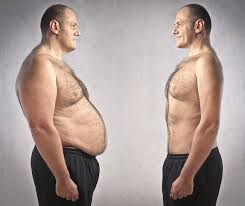




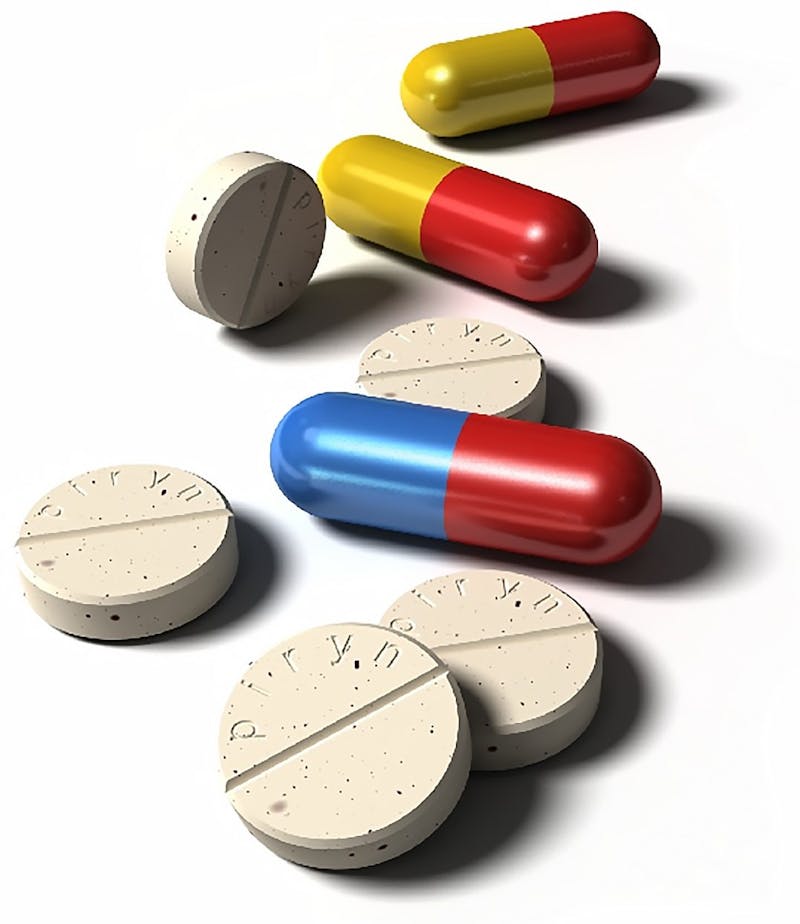 Other diabetes medications. Insulin-releasing tablets (e.g. sulphonylureas) often lead to weight gain. These include: Minodiab, Euglucon, Daonil, and Glibenclamide. Tablets like Avandia, Actos, Starlix and NovoNorm also encourage weight gain. But not Metformin. The newer drugs Victoza and Byetta (injectable) often lead to weight loss, but possible long-term side effects are still unknown.
Other diabetes medications. Insulin-releasing tablets (e.g. sulphonylureas) often lead to weight gain. These include: Minodiab, Euglucon, Daonil, and Glibenclamide. Tablets like Avandia, Actos, Starlix and NovoNorm also encourage weight gain. But not Metformin. The newer drugs Victoza and Byetta (injectable) often lead to weight loss, but possible long-term side effects are still unknown. 
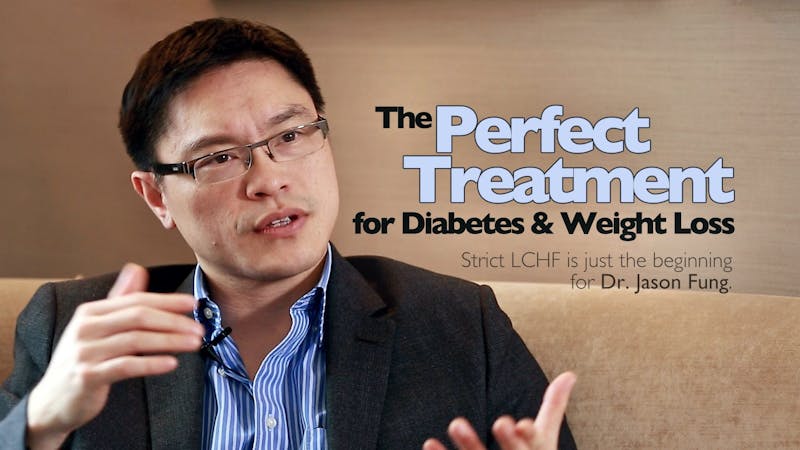

No comments:
Post a Comment